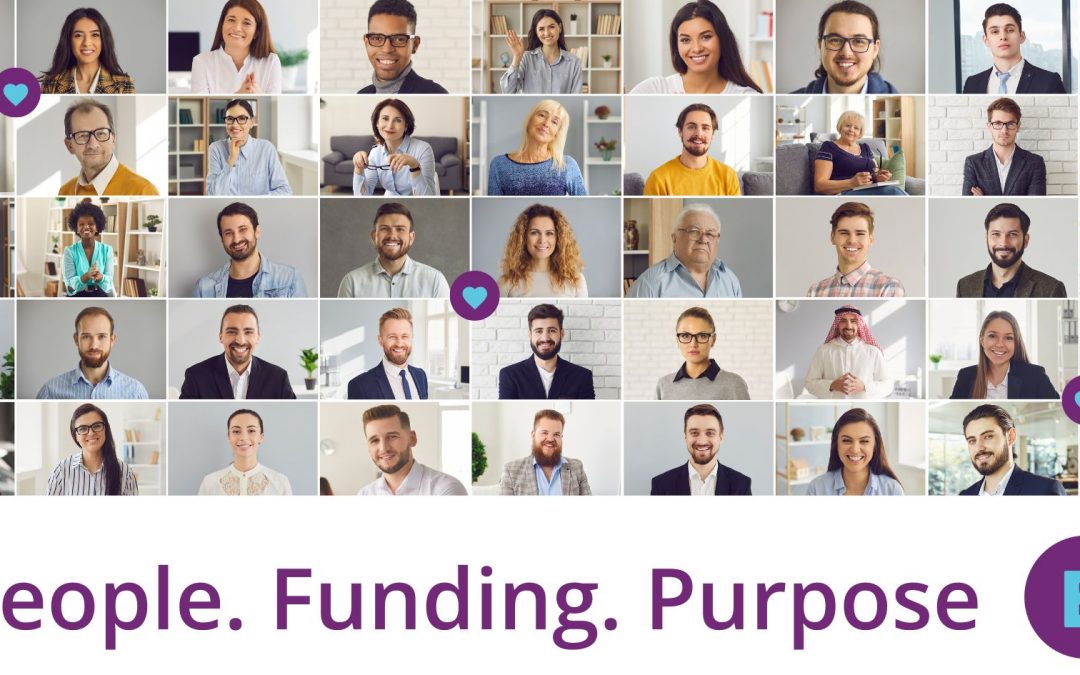
by Simbulele Jezile | Jul 8, 2025 | Careers
BackaBuddy is South Africa’s leading crowdfunding platform, empowering individuals and charities to raise funds for causes that matter. We’re looking for a detail-oriented and compassionate Finance Processing Clerk to join our growing team. This role sits at the heart of our finance operations and donor-facing services, supporting both beneficiaries and donors with accuracy, care, and efficiency.
- Position: Finance Processing Clerk
- Reports to: Finance Manager
- Location: Remote working but preference for Cape Town
- Work hours: Monday – Friday, 8am to 5pm
- Salary: R12 000 per month
- Employment type: 6 months contract
- Start date: ASAP
Key Responsibilities
- Process day-to-day financial transactions including donations, refunds, beneficiary banking details, and payouts.
- Accurately verify, classify, record, and post transactions across relevant systems.
- Reconcile campaign and charity accounts, ensuring all payouts are properly recorded and discrepancies are resolved.
- Investigate and allocate unassigned donations from bank statements and payment gateway reports.
- Respond to internal and external donor/beneficiary queries via our ticketing system within 24 hours.
- Provide daily follow-up on open queries and work toward timely resolution.
- Attend to all donation and payout-related queries in line with BackaBuddy’s customer service policy.
- Prepare and generate financial reports when requested.
- Support the Finance Manager with ad hoc financial tasks and compliance checks.
- Ensure all donation-related activities meet internal policies and external regulatory requirements.
- Actively contribute to the continuous improvement of financial processes, identifying inefficiencies and proposing solutions.
Requirements
- 2–3 years’ experience in a finance support, accounting, or similar role.
- Proficient in banking procedures, reconciliations, and payment systems.
- Strong working knowledge of Microsoft Office (especially Excel) and Google Workspace (Sheets, Drive).
- Excellent communication skills (written and verbal).
- Meticulous attention to detail with strong organisational and prioritisation skills.
- Ability to work independently, take initiative, and thrive in a remote team environment.
- Proven numerical accuracy and sound judgment when resolving financial discrepancies.
- Knowledge of donations and fundraising platforms is advantageous.
- Must have a personal laptop and reliable internet connection.
Ideal Candidate
- A compassionate communicator who thrives in customer-facing roles and finds joy in helping others succeed.
- A detail-driven individual who balances empathy with rigorous compliance and accuracy.
- A natural problem-solver who proactively identifies risks and inefficiencies and proposes actionable solutions.
- A tech-savvy team player comfortable with digital tools, systems, and remote collaboration.
- An adaptable, high-performing individual eager to contribute to a purpose-driven, fast-paced organisation.
What We Value
- Performance: Deliver high-quality work with speed and accuracy.
- Accountability: Own your responsibilities and follow through with professionalism.
- Effectiveness: Solve problems, streamline processes, and communicate clearly.
- Culture: Embody BackaBuddy’s mission and values in every interaction — internally and externally.
How to Apply
Please email your CV and a short cover letter explaining your relevant experience and why you’d be a great fit to [email protected]. While we’d love to respond to every application, only shortlisted candidates will be contacted. If you haven’t heard from us within 2 weeks, please know that we truly appreciate your interest and the time you took to apply.

by Simbulele Jezile | Jul 1, 2025 | Sport Fundraising
Photo credit: Flashlight Pictures
At just 14 years old, talented Imkhitha Joya from Old Crossroads in Nyanga, Cape Town, was rewriting what’s possible for a young girl with big dreams and an even bigger heart. As one of South Africa’s brightest young talents in chess, she’s earned national recognition and international invitations. Now, all she needed was a helping hand to keep her momentum going.
Earlier this year, Imkhitha was crowned South African U14 Girls Chess Champion after finishing undefeated at the Junior Closed Chess Championships. She also swept the Western Cape High Schools U15 Girls section, winning every game with a perfect score of six out of six. Her CHESSA rating now stood at 1811, making her the top-ranked U14 girl and 6th overall among female players in South Africa.
Despite these remarkable achievements, the road had not been easy.

Photo credit: Flashlight Pictures
In 2025 alone, Imkhitha qualified to represent South Africa at the African Individual Chess Championships, the African Schools Championships, and the FIDE Youth Olympiad. But each time, she had to stay behind — not because she wasn’t good enough, but because there simply wasn’t enough money or time to raise what was needed.
Her coach and mentor, Thando Hlakula, says those missed opportunities had been some of the toughest parts of her journey. “She worked so hard to qualify, but without funding, we couldn’t make it happen. Watching her miss out on experiences she earned was heartbreaking.”
But now, there was a second chance.
Imkhitha was invited to represent South Africa at the World Youth Chess Championships in Albania this October, and the African Youth Chess Championships in Algeria this December. These two tournaments are not just another opportunity — they are pivotal moments in her development, stepping stones on her path to becoming a Woman International Master, and eventually a grandmaster.
To get to Albania, Imkhitha needed to raise over R94,000 on her BackaBuddy campaign. The total includes return flights, visas, entry fees, accommodation, and daily expenses for herself and her coach, who will also serve as her guardian abroad.
Imkhitha’s campaign has reached limits that were unimaginable, raising over R136000, far beyond their target of R100000 from 154 incredible donors, “It’s been so moving to see people stepping up for her. Every bit of support, no matter the size, shows her that her hard work is seen and valued.”

Photo credit: Flashlight Pictures
Imkhitha’s story began in 2020 when she was introduced to chess through a school programme at Isigcawu Primary. It didn’t take long for her teachers and coaches to realise she had something special — but talent didn’t bring her easy wins.
“She lost every single game in her first tournament,” Thando remembered. “But what stood out wasn’t the loss — it was how she responded. She didn’t cry. She didn’t complain. She asked when the next tournament was.”
“She kept showing up, kept learning, and kept improving.”
Since then, she’s become known not just for her sharp mind, but for her humility, focus, and work ethic. Some days, she trains for up to eight hours. “She has a hunger to learn that I’ve rarely seen,” says Thando. “She doesn’t want to just be the best — she wants to keep getting better.”
Her breakthrough came this year, when she returned to the SA Junior Closed Championships with one goal in mind: to win. “Last year, she came second and was crushed by it,” he shares. “She learned from that. This year, she came back stronger, beat the defending champion, and walked away undefeated. It was a proud moment — one we’ll never forget.”
But Imkhitha’s motivation is about more than titles. She sees herself as someone who can shift perceptions — not just of what chess is, but of who belongs in the game.

“Representing South Africa is something she takes very seriously,” says Thando. “Her story challenges what people think is possible for young girls in townships like Crossroads. She’s showing that brilliance, discipline, and greatness can come from anywhere — all they need is a chance.”
Traveling internationally won’t be easy for a 14-year-old, which is why Thando will accompany her to both Albania and Algeria.
“She needs someone she trusts by her side,” he explains. “Not just for logistics, but for emotional support. Someone to help her stay grounded, strategise between rounds, and remind her why she belongs on that stage.”
For now, Imkhitha was focused on raising the funds to get there.
“Any contribution, big or small, ensured that a young girl from a disadvantaged background wasn’t held back by lack of funds,” Thando said. “She’s had done the work. She’s earned the opportunity. We just needed the support to help her take that next step.”
To support Imkhitha Joya, visit her BackaBuddy campaign link here:
https://www.backabuddy.co.za/campaign/get-imkhitha-to-the-world-chess-championships
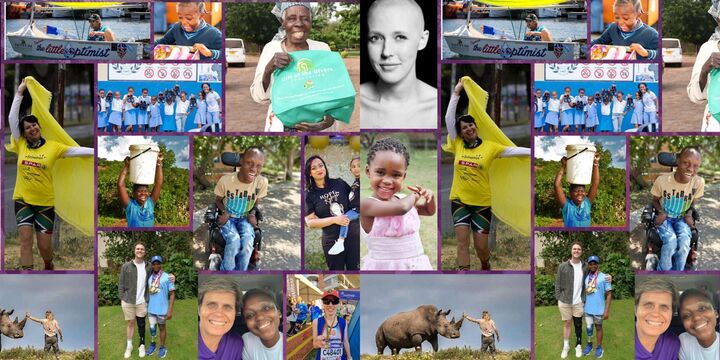
by Simbulele Jezile | Jun 20, 2025 | BackaBuddy News
South Africans are giving more — and making an even bigger impact — thanks to a major change on Africa’s most trusted crowdfunding platform. As of June 2025, BackaBuddy now charges 0% platform fees on all campaigns, meaning every rand raised goes directly to the cause.
For individuals, schools, charities, and community groups, this shift is already helping more people raise funds, reach more donors, and uplift more lives.
Raising More. Giving More.
Already this year, the move to 0% platform fees has helped channel over R12 million extra directly into the hands of campaigners and charities.
In the past 12 months, more than 54,000 donations through BackaBuddy have raised over R157 million — supporting medical care, education, disaster relief, disability access, housing, and many personal needs across South Africa.
People Funding Purpose
Every day, individuals use BackaBuddy to raise funds for life-changing needs — from surgeries and school fees to funeral costs, disaster recovery, and community projects.
Whether it’s a mother crowdfunding for her child’s hearing aids, a teacher helping a student get to university, or a neighbourhood rallying to rebuild after a fire — every campaign brings hope and opportunity.
“When people feel empowered, they give more,” says Patrick Schofield, Founder and CEO of BackaBuddy. “Compulsory. Mandatory. Exclusionary. These are words I don’t like. But choice, agency, and accessibility? These are words I do. It’s what informed my thinking in developing the 0% platform fee model at BackaBuddy. Firstly to maximise funds going directly to those who need them. But also, by giving you the option to add a voluntary tip when you donate, you’re given the choice — and the agency — to support the work we do in enabling crowdfunding for others. If you feel our service is excellent and our platform delivers real value, you’ll choose to support us. And if not, you won’t. What better way to ensure everyone at BackaBuddy is super focused on excellence in service and being the best possible platform out there for you.”
Since launching in 2015, BackaBuddy has helped raise more than R630 million for over 44,000 campaigns — powered by a caring community of over 650,000 donors in South Africa and around the world.
How It Works
BackaBuddy’s 0% platform fee officially launched in June 2025. Donors now have the option to leave a small voluntary tip to help support the platform — while every rand raised (minus only third-party payment processing fees) goes directly to the campaign.
Charities Already Seeing the Difference
Both large and small charities are benefiting from the change.
Gift of the Givers shares:
“We pride ourselves on ensuring that every cent possible goes to the people we help. With BackaBuddy’s 0% platform fee and transparent cost structure, our fundraisers know that their supporters’ donations go where they’re needed most — inspiring trust and generosity.”

Charities, like Rainbows and Smiles — supporting families of children with cancer — agree:
“The 0% platform fee has been a real gift,” the team says. “It reassures donors that their contributions go directly where they’re needed — and for smaller charities like ours, it removes so much of the stress of fundraising. Every rand now makes an even bigger difference.”

Why More Are Choosing BackaBuddy
More South Africans are choosing BackaBuddy because it helps them raise more — with 0% platform fees ensuring every campaign keeps more of what it raises. The platform offers trusted, easy-to-use technology and practical tools to help campaigners tell their stories and inspire giving.
To support a fundraiser or launch your own campaign, visit:
https://www.backabuddy.co.za
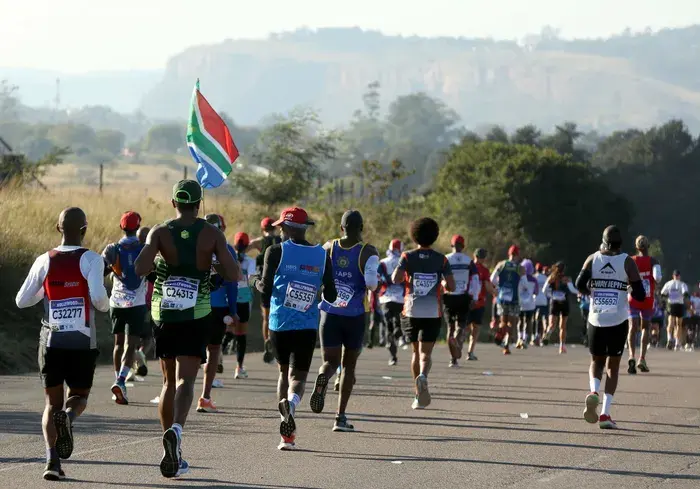
by Simbulele Jezile | Jun 6, 2025 | Organisations
Picture: The 2023 Comrades Marathon down run from Pietermaritzburg to Durban. Shelley Kjonstad/African News Agency (ANA)
As thousands prepare to lace up for the Comrades Marathon, a remarkable group of runners are stepping up — not just for the challenge, but for change.
Every stride on race day will cover more than distance. It will raise awareness. It will honour lives. And in many cases, it will fund vital work led by some of South Africa’s most impactful nonprofits.
At BackaBuddy, we’re proud to be the platform of choice for individuals and charities running with purpose — transforming this iconic race into a celebration of generosity, resilience, and collective action.
Running for Children, Education, and Hope
Rainbows and Smiles
Rainbows and Smiles offers emotional, social, and financial support to families facing the unimaginable: childhood cancer. Their Comrades runners race in memory of brave little warriors and in honour of those still fighting — ensuring no child faces cancer alone.
Every year, they are joined by a powerful group of supporters who turn their sweat into support. Together, they run with heart, and for hope.
Support their champions here: Rainbows and Smiles Foundation | BackaBuddy
CHOC Cows
With their unmistakable horns, high energy, and unmatched spirit, the CHOC Cows are a beloved feature of the Comrades route. But beyond the fun is a serious mission — to “keep more than hope alive” for children affected by cancer.
By fundraising through BackaBuddy, CHOC Cows and their many champions help provide accommodation, counselling, awareness, and comfort to families across South Africa.
Support the herd here: The CHOC Cows | BackaBuddy
University of Pretoria
The University of Pretoria’s Comrades runners take each step in support of access to education, groundbreaking research, and impactful community upliftment. Their fundraising contributes to student bursaries, academic development, and outreach programmes that transform lives.
This year, they’re joined by individuals such as:
- Prof Andries de Lange – A UP staff member whose campaign, From the Academic Field to the Finish Line, channels his Comrades run into fundraising for educational equity and empowerment.
- Dr Bianca Frost– A dedicated educator whose campaign, From the Classroom to the Comrades, supports young learners by showing them that discipline, dreams, and determination can cross any finish line.
Support The University of Pretoria Team here: University of Pretoria | BackaBuddy
Why Run for a Cause?
Whether you’re passionate about healthcare, the environment, mental health, education, or emergency relief — there’s a cause on BackaBuddy that speaks to every heart.
Running for a cause is an incredible achievement on its own. But using it as a platform to uplift others? That’s legacy.
And the good news? It’s simple to get started. We’re here to help you launch, share, and grow your campaign — from start to finish line.
Ready to Join the Movement?
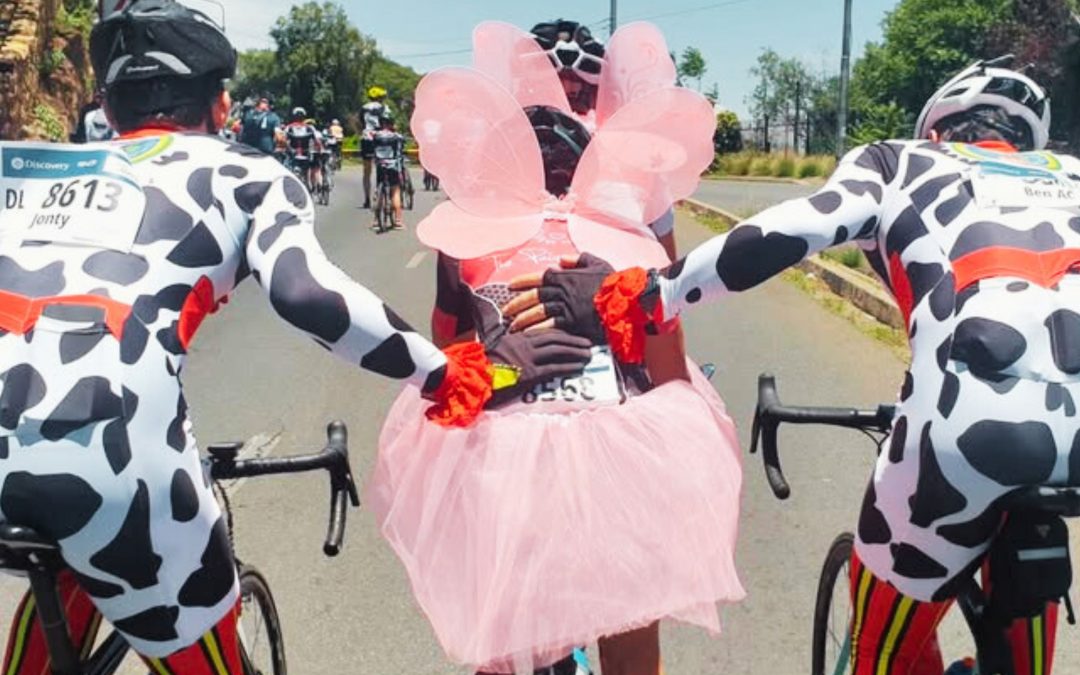
by Simbulele Jezile | May 29, 2025 | Organisations
In a world where childhood cancer turns families’ lives upside down, a spirited herd from all over the world are lacing up, diving in, and moo-ving mountains — one race, one challenge, one campaign at a time. They are The Cows — and they’re not just fundraising, they’re doing it with heart, humour, and a whole lot of cowbell.
Since 2008, this animated crew has rallied behind CHOC Childhood Cancer Foundation South Africa, helping ensure that children and teens fighting cancer get the care and comfort they deserve. With every event they take on, The Cows live by their motto: Love Living Life — and use every opportunity to give back.

Why CHOC Matters
CHOC is there when it counts most — making sure no child or teen faces cancer alone. While doctors handle the treatment, CHOC wraps families in care and support.
They offer:
- A safe place to stay near hospitals
- Nutritious meals to keep little fighters strong
- Help with transport for long journeys
- Emotional support for parents and kids
- Bright, kid-friendly hospital spaces
- Training for early diagnosis
CHOC keeps families together, spirits lifted, and hope alive — with help from champions like The Cows.
The Cows: Turning Athletic Spirit into Action
What began as a small group has grown into a nationwide movement. The Cows show up at races, swims, rides, and endurance events, dressed head-to-hoof in cow gear, armed with infectious enthusiasm and a fierce will to make a difference. They’ve made it their mission to turn every sporting challenge into a fundraising opportunity for CHOC.
At this year’s aQuellé Midmar Mile in February 2025, 54 Cow champions dived into action and raised an incredible R228,000 through BackaBuddy. Each campaign, big or small, became a ripple of hope. Swimmers dedicated their efforts to children they’d never met, but whose battles had touched their hearts.
“We don’t do this for glory,” shared one long-time Cow. “We do it because we’ve seen what CHOC does for families. If our running shoes and swim caps can help even one child stay with their family through treatment, it’s worth every blister.”
View The Cows’ Midmar Campaigns:
https://www.backabuddy.co.za/organization/the-cows
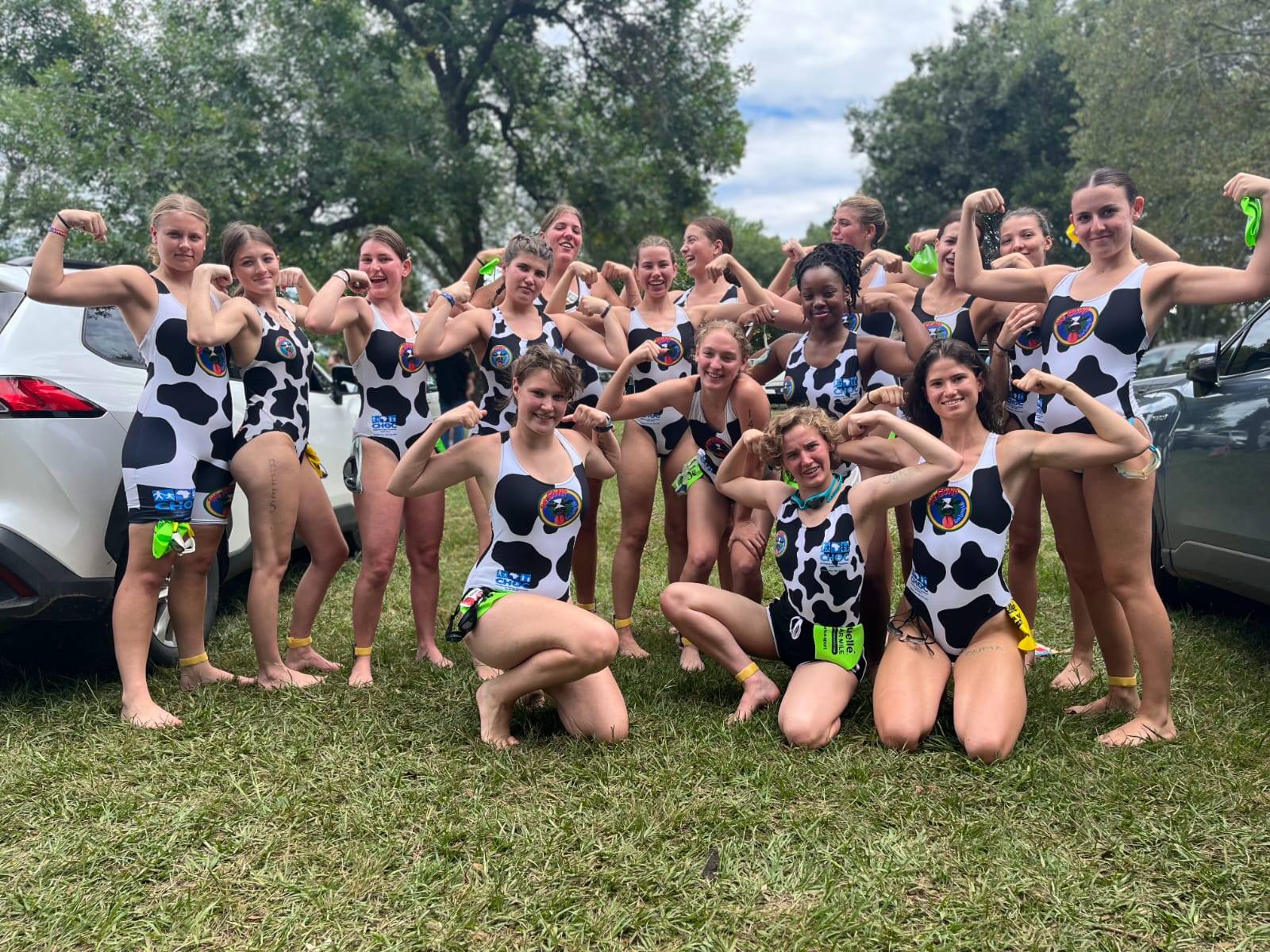
Charging Toward Comrades 2025: One Step, One Smile, One Story at a Time
The Cows are now gearing up for the ultimate challenge: the Comrades Marathon 2025 on 9 June. With their tails wagging and cowbells ringing, they’ll hit the road dressed in signature black-and-white suits — but their eyes are fixed on something far beyond the finish line.
Every kilometre run is a message to the children of CHOC: we see you, we support you, and we believe in your future.
But they can’t do it alone.
How You Can Help
Whether you’re an athlete, a supporter on the sidelines, or someone who simply believes in doing good, there’s a place for you in this story. You can:
- Make a donation to support The Cows and CHOC
- Cheer on a Cow champion
- Start your own fundraising campaign for CHOC through BackaBuddy
Start your own campaign here:
Become a Cow! – Raise Funds for CHOC on BackaBuddy!
Your support helps fund life-saving treatment, warm meals, and a sense of normalcy for kids who desperately need it.
To support The Cows and their fundraising efforts for CHOC:
View their BackaBuddy profile: The Cows on BackaBuddy
Learn More About CHOC Here: https://choc.org.za














